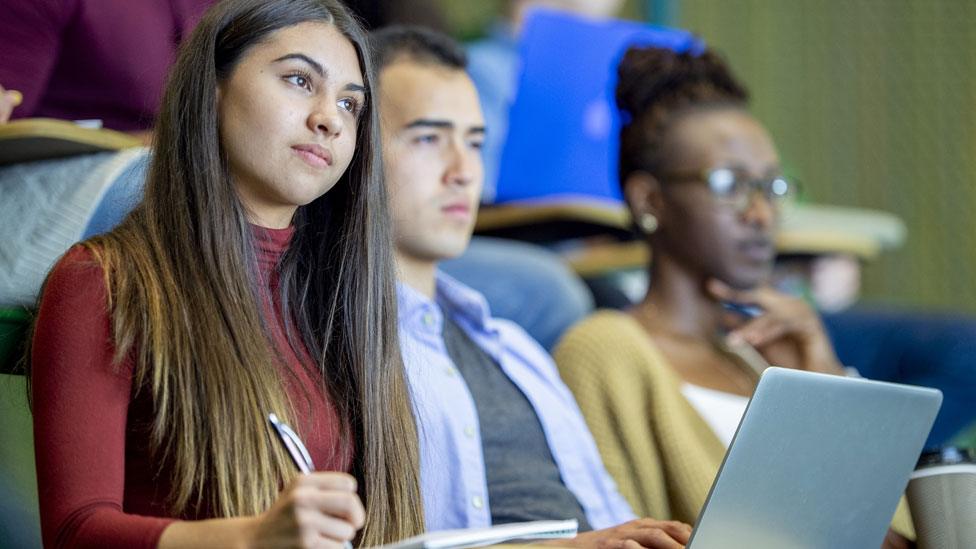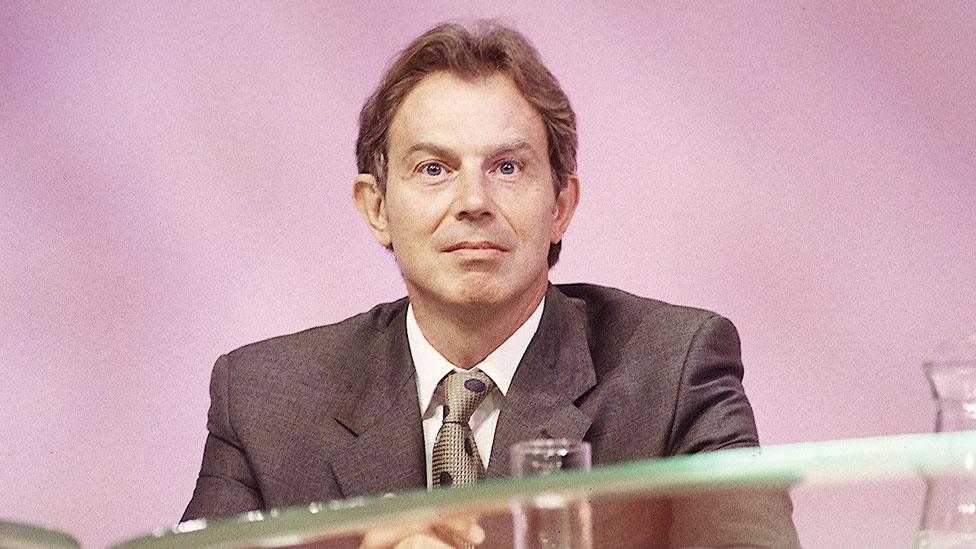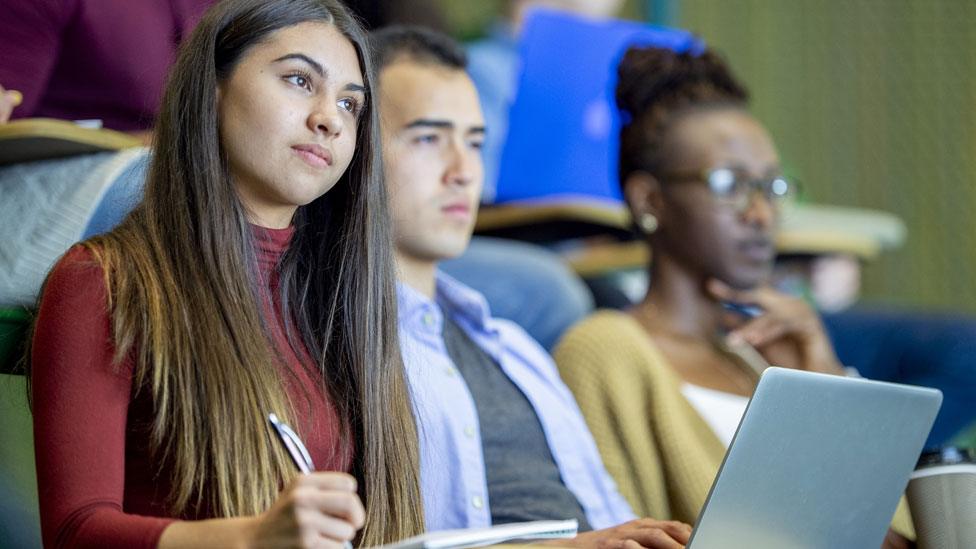The symbolic target of 50% at university reached
- Published
- comments

The proportion of young people in England going to university has passed the symbolic 50% mark for the first time.
It comes almost exactly 20 years after then Prime Minister Tony Blair made the call for half of young adults to go into higher education, external.
Figures from the Department for Education, for 2017-18, show 50.2% of people going into higher education.
The figures are higher for women, where 57% are going to university.
The annual statistics on entry to higher education show the proportion of people set to go to university before the age of 30.
Social change
These latest figures are only a fraction higher than the year before - up from 49.9% - but after years of steady increases, it means a majority of young adults are now going on to higher education.
It shows a significant social change over the decades.

Tony Blair announced the aim of reaching 50% going into higher education at the 1999 Labour conference
In 1980, only 15% stayed in full-time education after the age of 18, in any kind of training or further or higher education, including universities and what were then polytechnics.
By 1990, that had risen to 25% for all forms of post-18 education, according to House of Commons library figures.
Gender gap
The target of 50% going into higher education was set in September 1999 in a conference speech by Tony Blair, two years after coming into office.
"Today I set a target of 50% of young adults going into higher education in the next century," Mr Blair told Labour Party delegates.
The new figures show 50.2% - but there are significant gender differences. While 57% of women are going into higher education, the proportion is 44.1% for men.
It means the participation rate in university for men is still lower than that reached by women more than a decade ago.
In the graduating cohort of 1980, there were 43,000 men and 25,000 women. Among about 430,000 starting degree courses for the first time this autumn, more than 245,000 are likely to be women.
But the Education Secretary Gavin Williamson called on universities to do more to widen access to the disadvantaged.
He said pupils from the most advantaged areas were 2.4 times more likely to stay on for higher education than those from the most disadvantaged.
"It is simply not good enough that white working class boys are far less likely to go to university and black students are far less likely to complete their courses than others," said Mr Williamson in a letter sent to Universities UK.
"These inequalities have been around for far too long and should be addressed as a priority."
- Published11 July 2019

- Published10 September 2019

- Published30 May 2019
